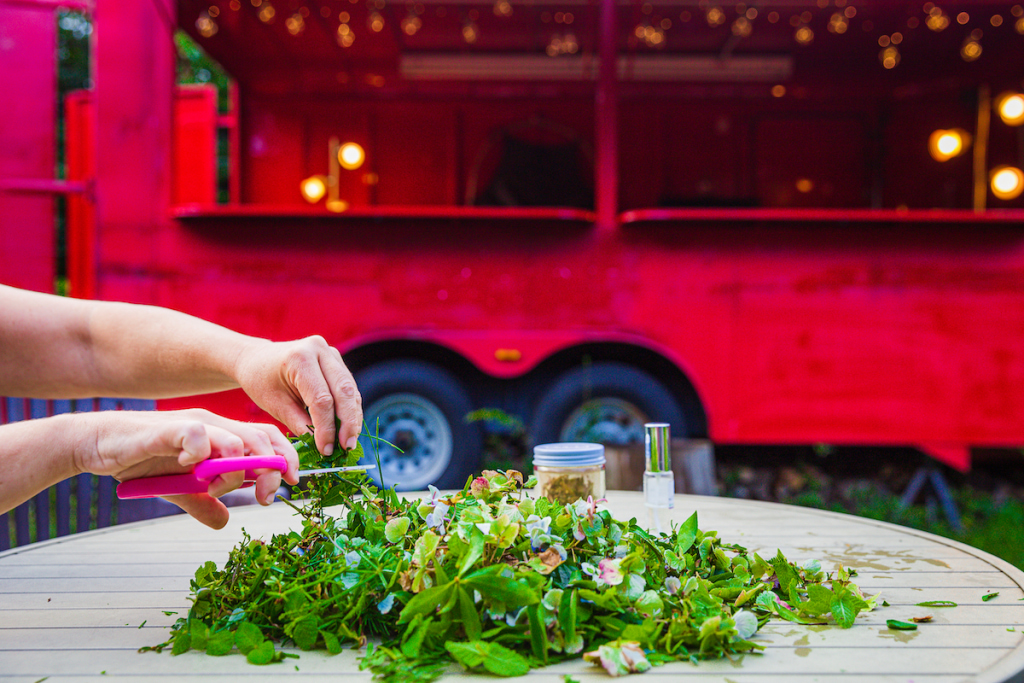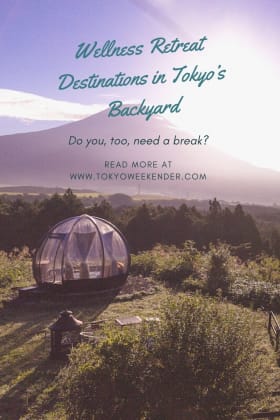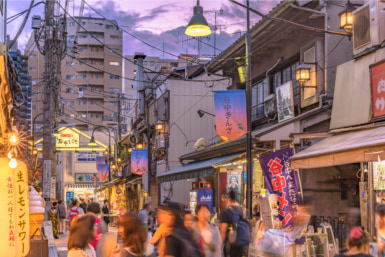As the pandemic continues many of us have found ourselves newly exploring wellness options — or perhaps renewing an existing interest in this area. And while travel is currently still not advisable, planning nearby getaways for the purpose of health and relaxation can at least be a high priority to add to your future plans. Here are two favorite wellness options that are easily accessible from the Tokyo metropolis, and that both feature the healing power of herbs.
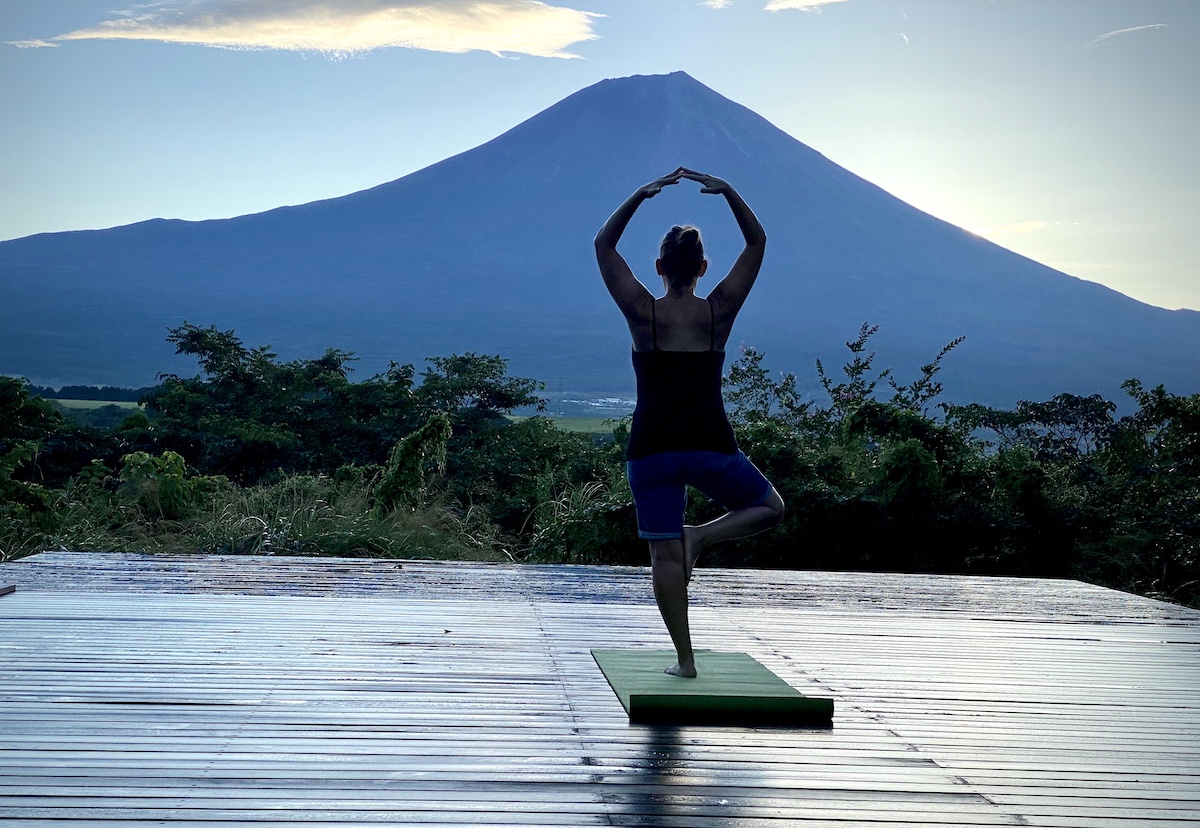
Yoga with a view: Solo yoga on Sun and Moon’s wooden deck. Photo by Solveig Boergen
The Sun and Moon: Revitalize yourself at the foot of Mount Fuji
Few sights are more glorious than Mt. Fuji spread out in her full grandeur, and one prime spot to gaze upon this intensely picturesque scene is the Asagiri Plateau in the city of Fujinomiya, Shizuoka Prefecture, just adjacent to the mountain.
Dr. Tatsutaka Yamamoto, who runs the only existing medical clinic in the area, knew the value of location when he selected Fujinomiya to build the nearby Sun and Moon retreat center, which aims to help people recover from what is known as “nature deficit disorder.” A former student of U.S. integrative medicine pioneer Dr. Andrew Weil, Yamamoto chose the Fujinomiya locale for its 700-meter altitude, which is an ideal mid-mountain level for experiencing the physical benefits of connecting with nature.
Upon arrival to the wellness resort, visitors are first asked to complete a brief questionnaire aimed at understanding their specific physical and mental needs. This is followed by a small glass of medicinal tea, which has been prepared to match their unique constitution from among Dr. Yamamoto’s extensive collection of herbs.
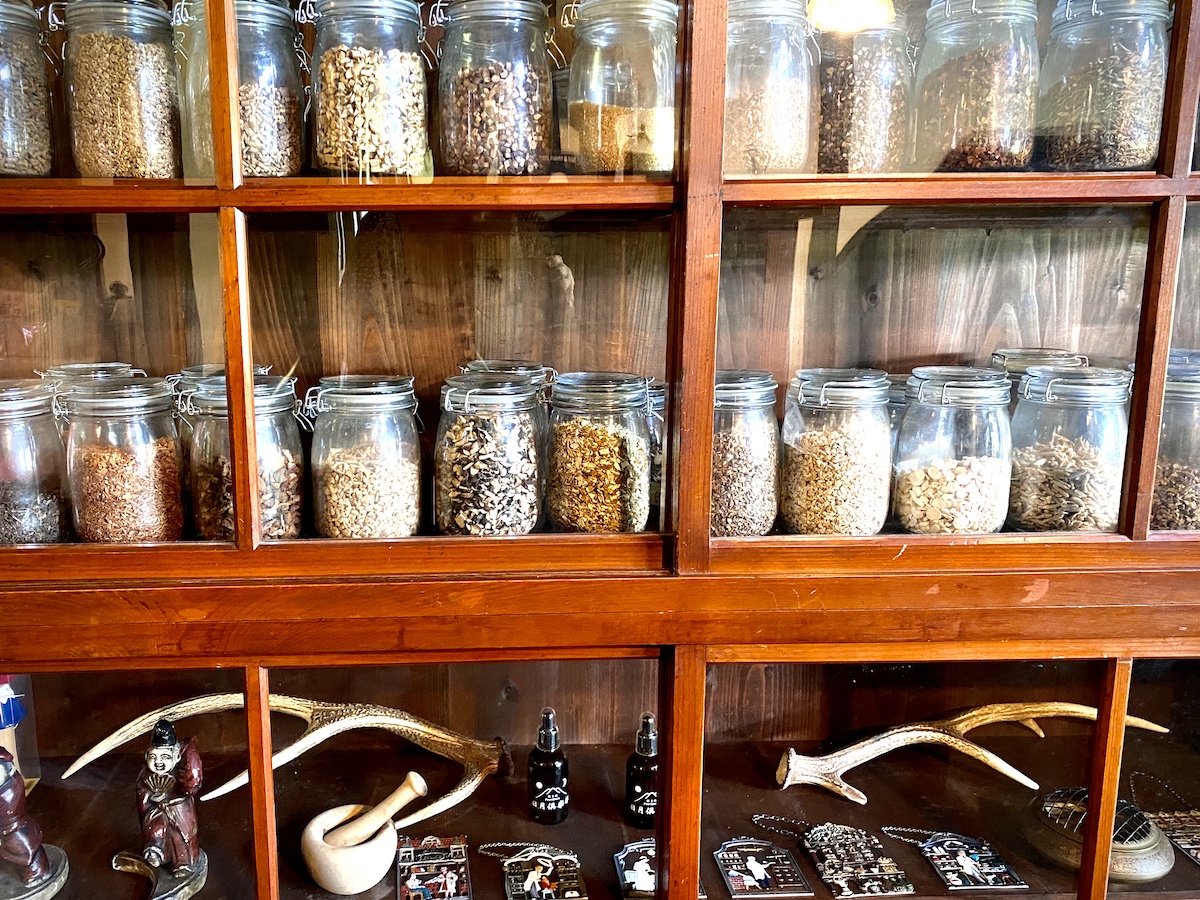
Too many to choose from: Dr. Yamamoto’s extensive collection of herbs. Photo by Solveig Boergen
Guests may then choose from numerous options for healing and relaxation, which might include a guided session of “grounding” (essentially, walking barefoot) to help restore the body’s natural magnetic connection to the earth; doing yoga or stretching on the resort’s sprawling wooden deck; renting a bicycle to explore the nearby Lake Tanuki; or simply chilling out to read a book or mountain-gaze inside a hammock.
Special additional options are available for groups, including access to Seiyoen, a nearby sister facility whose grounds and adjacent forest are straight out of a Ghibli movie: lush, rainforest-like trails with waterfalls cascading down languidly from Mount Fuji, a tranquil pond flanked by Buddhist statues that encircle the area with protective energy, and a separate building for events and seminars whose façade features a dramatic montage of vintage mirrors. If you have been looking for a spot to hold that yoga retreat or corporate team-building workshop, you may have just found your venue.
Group packages also include a dinner prepared lovingly by Dr. Yamamoto’s wife, Kiyomi, using fresh, healthful ingredients, as well as the opportunity to make your own herbal water mist.
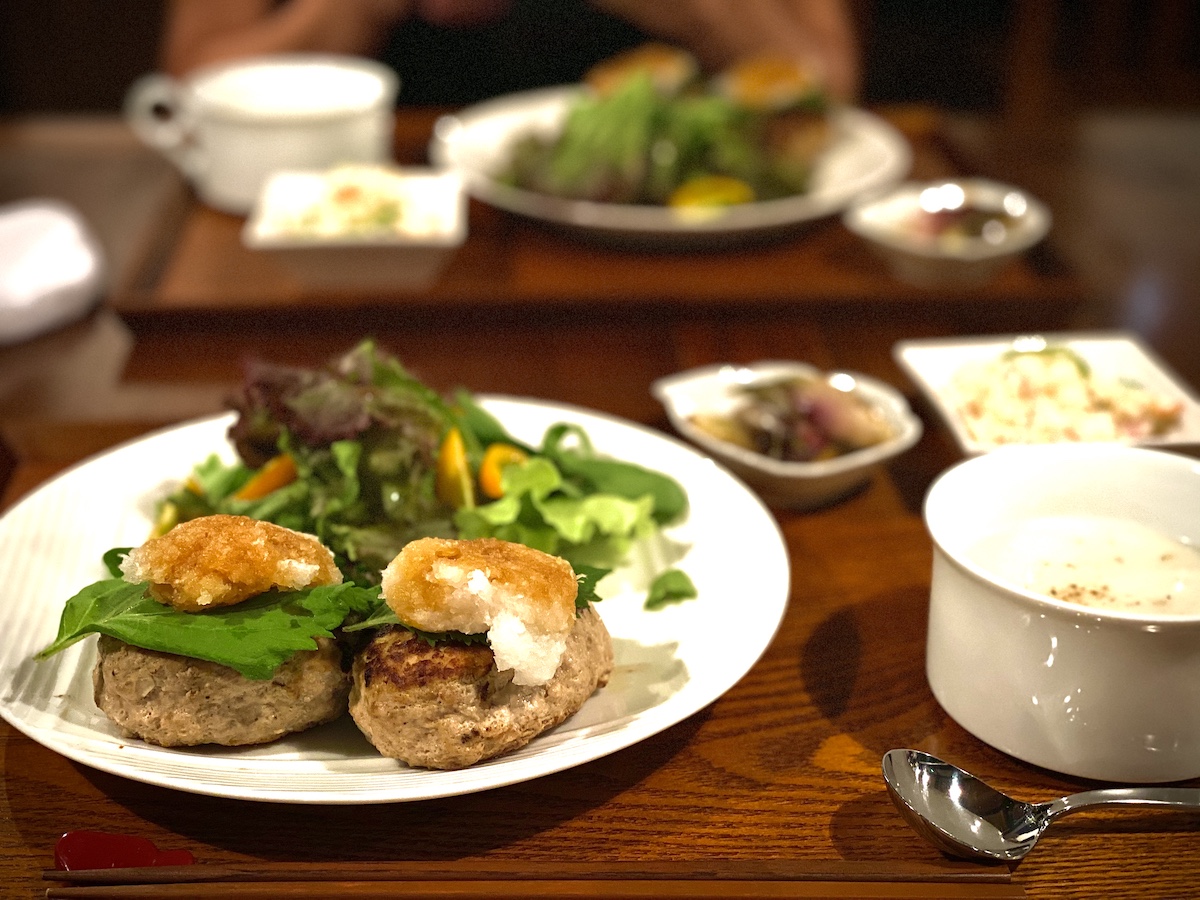
Healthy dinner at Sun and Moon. Photo by Solveig Boergen
This involves walking around the grounds to collect and snip your own greens, which you are then gifted at the end of your stay inside a beautiful glass bottle after the plants’ herbal essence has been extracted using special machinery.
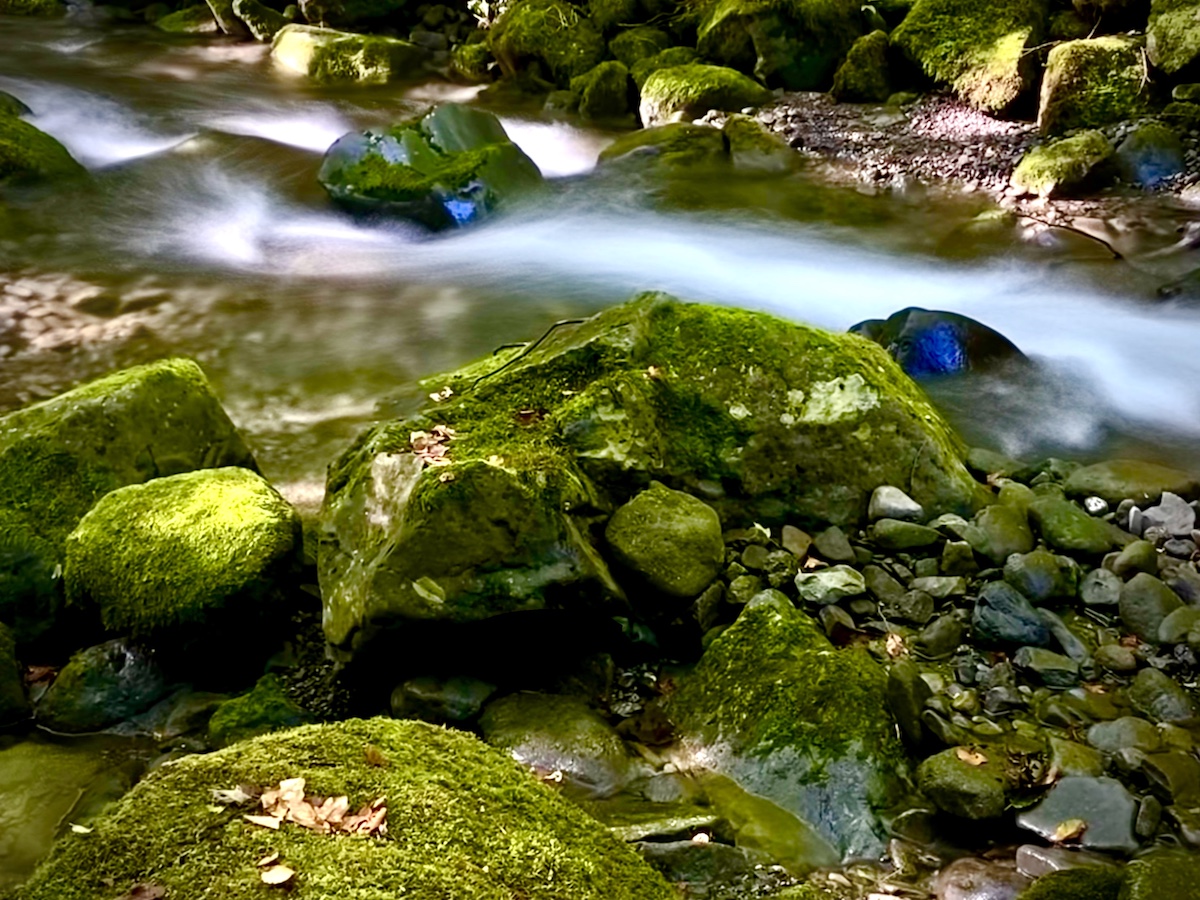
Reconnecting with nature near Sun and Moon resort. Photo by Solveig Boergen
The resort offers a menu of accommodation options that include a camping zone where you can pitch your own tent, glamping in onsite tents bedecked with vintage antique décor, and cottages with adjacent clear dome tents that are ideal for star-gazing — lookout for dramatic views of the Milky Way on a clear night.
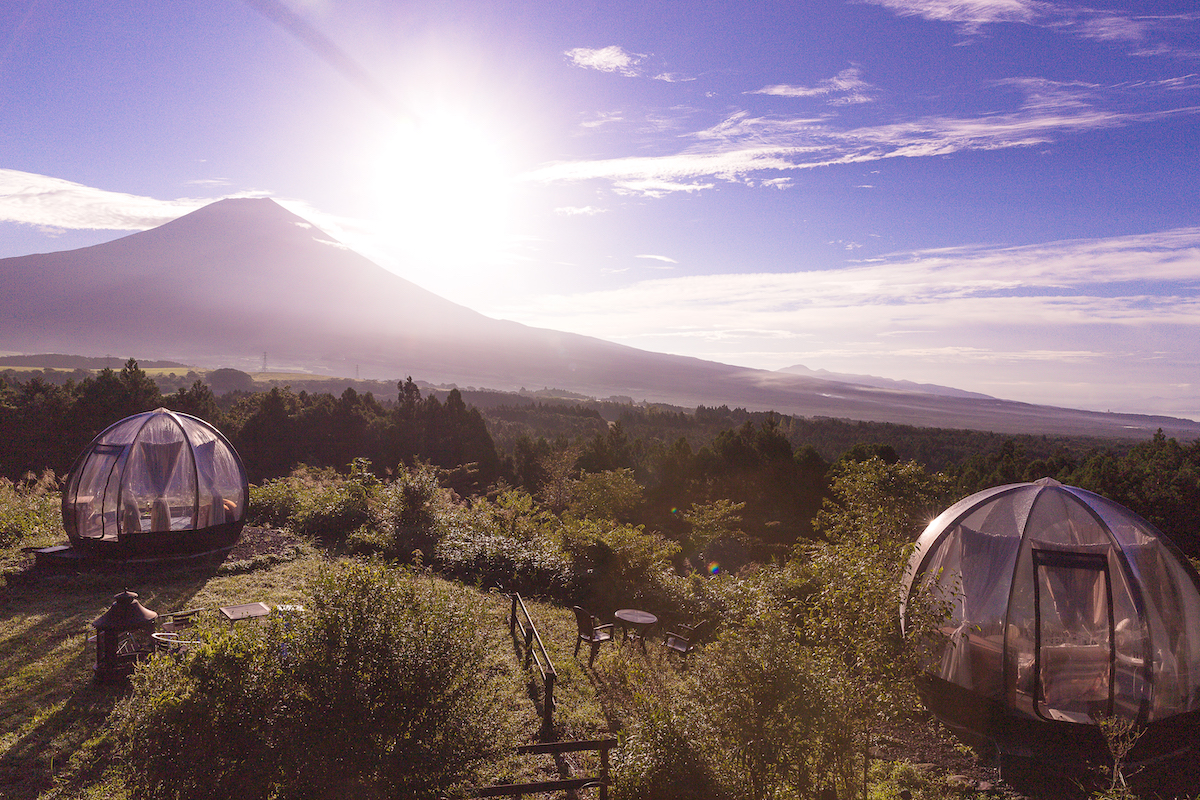
Sun and Moon’s stunning camping zone. Photo by Solveig Boergen
“The forest here includes trees that stay green all year, and produce healing fragrances, as well as trees that shed their leaves, which can be enjoyed all-year-round throughout the various seasons,” Dr. Yamamoto explains. “The presence of both types of trees makes this an especially wonderful place from the perspective of forest bathing.”
His wife adds: “Everything from the fragrance of the herbs to the level of detoxing depends upon the particular rhythms of nature at any given time. We hope our guests will experience the fullness of these natural cycles during their stay, which is also reflected in the naming of our resort.”
Awa Retreat: Bathe yourself in herbs — and in sand — along the Chiba seacoast
Many Tokyoites think of Chiba exclusively in terms of the urban areas that lie adjacent to the metropolis and are unaware of the profound nature that lies further down along the Boso Peninsula, with its tropical, palm tree-fringed oceanscape.
The city of Minamiboso at the peninsula’s southern tip is a fantastic destination for cycling and adventure, swimming and surfing along the area’s pristine beaches and enjoying health-related offerings. One particularly unique resource is Awa Retreat, a health initiative launched by Kansai native and long-term Tokyo resident Hiromi Sasaki, who relocated to the city in 2008 and now runs an herbal farm known as Herb Chikura. In addition to being an herbalist, Sasaki is also a massage therapist, and a farmer who grows 100% organic, pesticide-free rice, wheat, soy and vegetables.
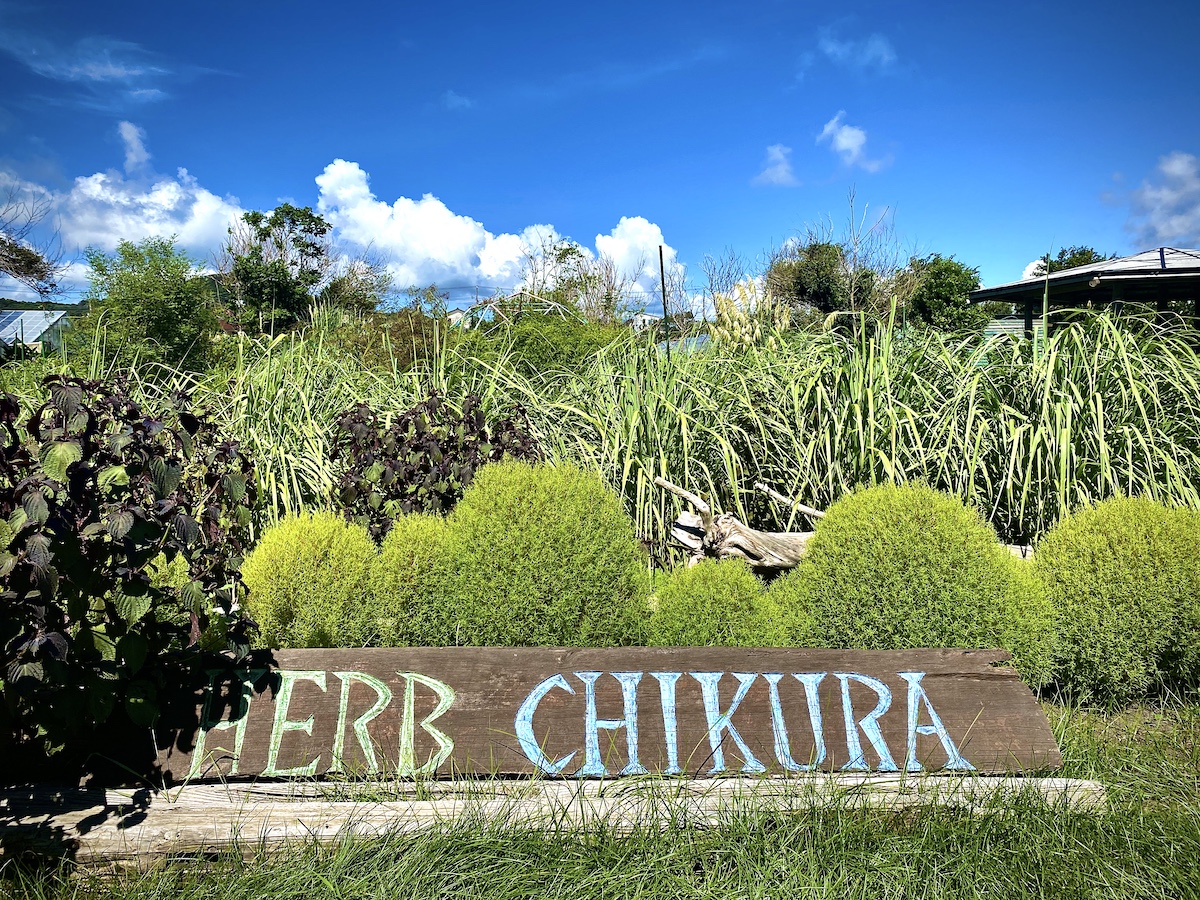
Ready to explore Herb Chikura. Photo by Solveig Boergen
Herb Chikura was an empty lot covered in bramble when Sasaki relocated to Chiba, and she has since built it up into a thriving farm whose herbs and medicinal plants include lemongrass, ginger, spearmint, black peppermint, hibiscus, holy basil, echinacea, and mulberry, to name only a fraction. Sasaki creates an array of herbal teas and pot pourri, as well as herbal bathing products and oils for use in massages and other treatments at her nearby salon, Herb Nest.
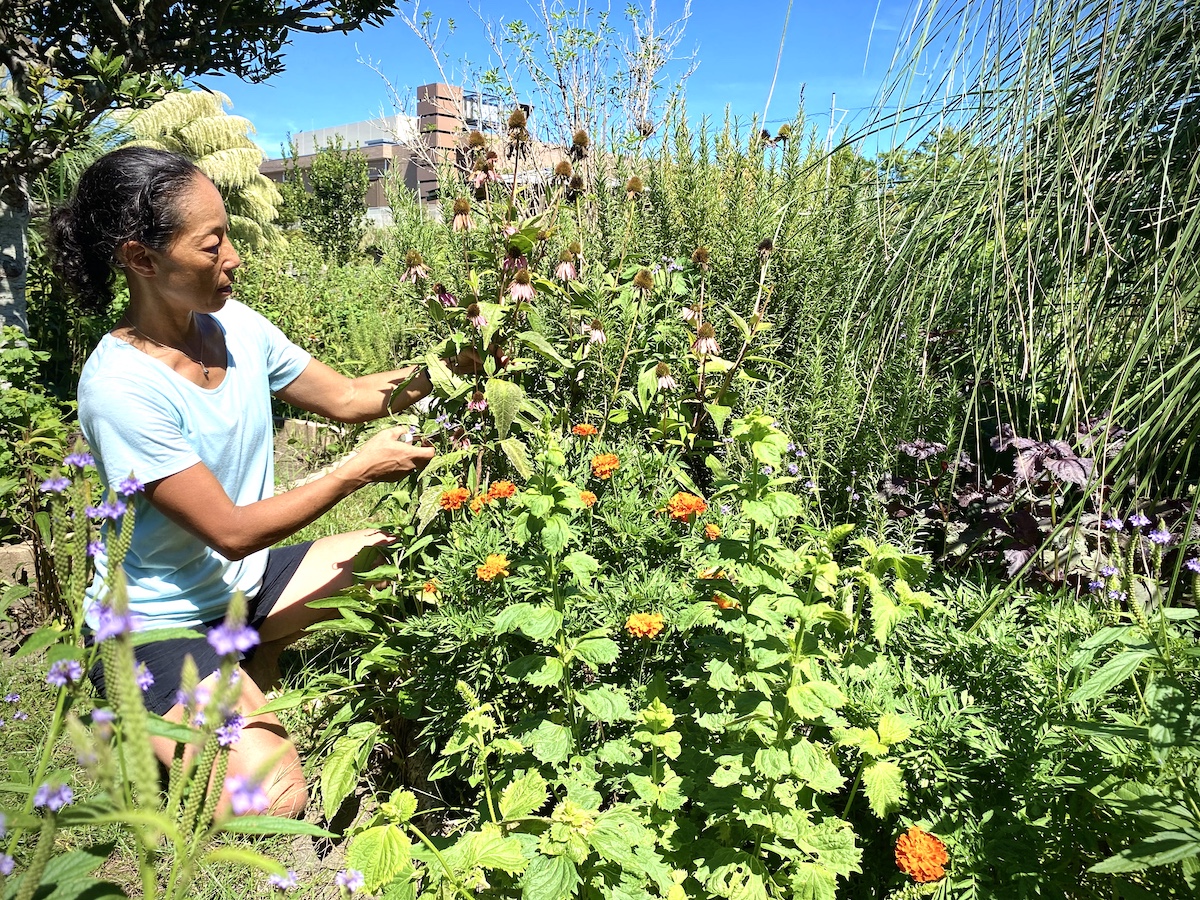
Hiromi Sasaki from Herb Chikura helps you pick the perfect herbs. Photo by Solveig Boergen
Visitors to the farm are invited to walk through its healing grounds, as well as to pick and take home as many fresh herbs as they can hold. Sasaki also regularly holds workshops and events in conjunction with Awa Retreat, including collaborations with other healers, organic farmers and chefs. Until the cold weather sets in (around beginning to mid-October), she is facilitating sand bathing sessions at Chikura Beach, located just steps away from her farm. This is just as it sounds: immersing yourself inside a pit of warm sand, which is said to draw out toxins and impurities through the pores, thereby invigorating the body’s excretive system and metabolism.
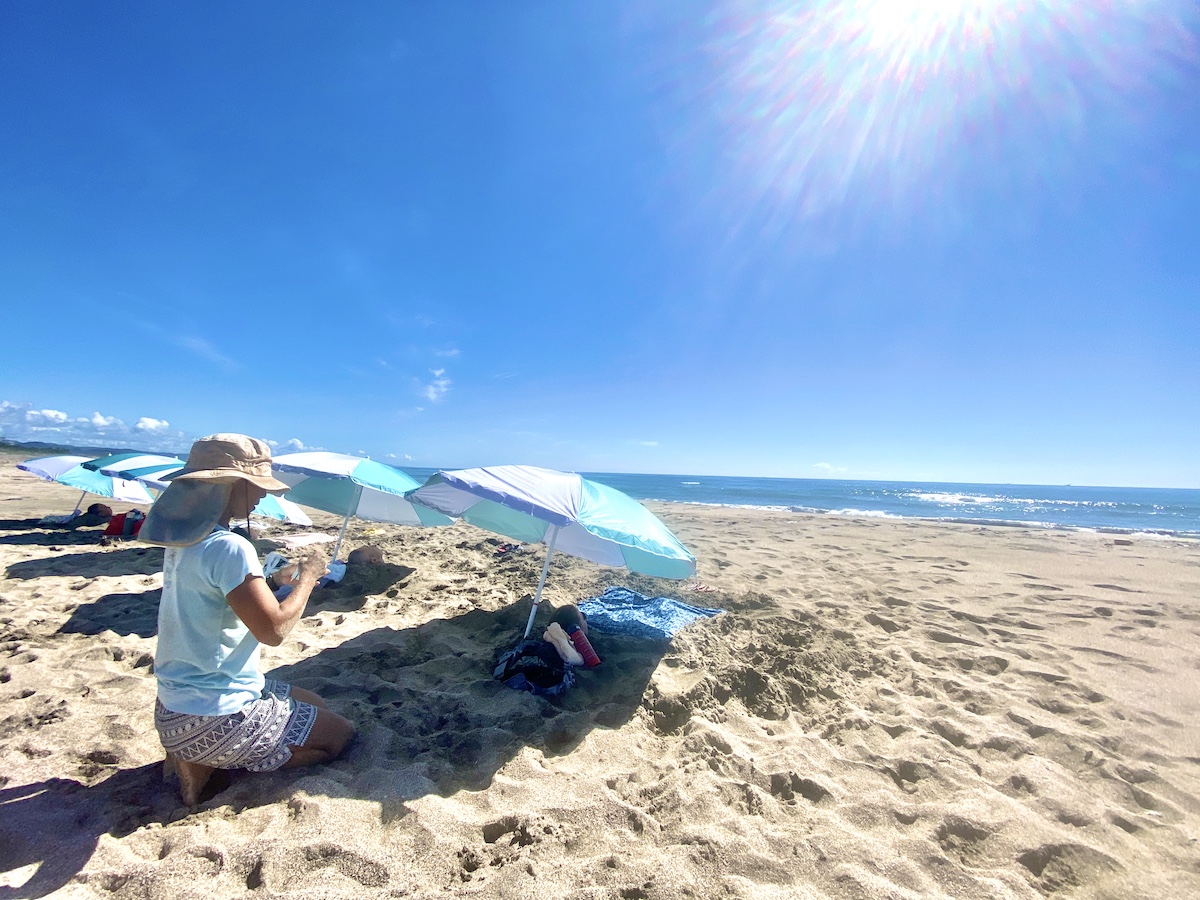
Sand bathing at Chikura Beach. Photo by Solveig Boergen
Be forewarned, however: no protective covering is provided, with the idea being that sand bathing au naturel, where no barrier stands between yourself and the elements, provides the maximum healing benefits. Sasaki recommends a sand bath for at least a half-day course (four hours), and if possible, a full-day one (eight hours) — and the first two to three hours can cause intense itching and physical discomfort as the body adjusts to contact with the sandy environment. While some may be inclined to go down this route of shugyou (hard-core physical and mental challenge as a form of training), mere mortals are strongly recommended to avoid this suffering altogether by bringing along your own yukata or another comfortable cotton garment to wear inside the sand.
In any case, the experience of gazing out at the ocean and listening to the crashing waves is a deeply healing and relaxing one, and Sasaki is on hand to serve refreshing herbal tea from her farm to make sure that sand bathers stay hydrated.
“The nature here is wild and raw,” she says. “Besides sand bathing, the expansive beach is a superb place for long walks, and for sessions of earthing or meditating.”
“Of course, you could go to a fancy store and buy your herbal products there,” she adds. “But coming here allows you to commune with the herbs by experiencing them in their natural setting.”
Visit the Awa Retreat website (Japanese only) for additional information on rates, availability and reservations (which are required for all visits and treatments), or e-mail Hiromi Sasaki at [email protected]. While English is spoken, some Japanese will be helpful. In addition to her herbal products, Sasaki also takes orders for genmai (brown rice) and white rice grown on her organic rice field, Happy Farm. Contact The Sun and Moon directly for information on activity options, group packages, rates and other inquiries.
Please continue to follow social distancing measures and check with local authorities before traveling to prevent the spread of COVID-19.
The article was originally published in Sept 2020 and updated in August 2021.
Updated On January 30, 2023

